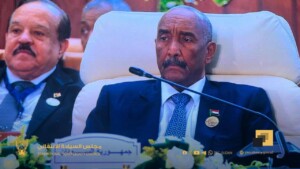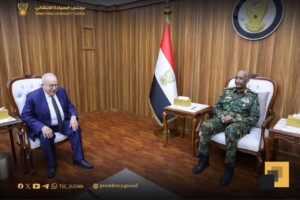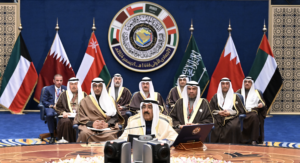Rebel factions reject ‘distorted’ Sudan peace agreement
The Armed Struggle Movements coalition, consisting of eight Sudanese rebel groups, said it is not concerned with the outcomes of the peace agreement, describing it as “incomplete and distorted”, in a statement on Friday.
 (File photo)
(File photo)
The Armed Struggle Movements coalition, consisting of eight Sudanese rebel groups, said it is not concerned with the outcomes of the peace agreement, describing it as “incomplete and distorted”, in a statement on Friday.
The movement stated it is not committed to any of plans outlined in the peace agreement, explaining that they were invested in the peace negotiations in the South Sudanese capital of Juba “until the double standard approach began”. According to the coalition certain groups were excluded from negotiations after “comrades of the struggle were divided into first and second degree fighters based on an incorrect evaluation of the situation”.
At the same time, the coalition affirmed its strong support for any comprehensive peace agreement that addresses the core of Sudanese crises in general and works to solve the issues of the marginalised people in particular.
The statement stressed the keenness of the Coalition to ensure the security, safety, and stability of the homeland.
The Armed Struggle Movements Coalition consists of the Sudan Liberation Movement led by El Rayeh Juma, the United National Front Forces Alliance for Change headed by Feisal El Husseini, the Sudanese Alliance led by Maulana Tajeldin, the United Sudan Liberation Movement of El Tayeb Suleiman, the Sudanese National Liberation Front Movement led by Yaqoub Adam, the National Salvation Forces Alliance, led by Osman Bownin, the Independent Sudan Liberation Movement led by Abbas Aseel, and the Justice and Equality-Corrective Movement under the leadership of Zakariya Mousa El Dosh.
New JEM faction
The New Justice and Equality Movement (NJEM) led by Mansour Arbab, and the Revolutionary Awakening Council (RAC) headed by imprisoned former janjaweed leader Musa Hilal, also issued a joint press statement on Friday.
They declared their rejection of what they called “the Juba deal” and said that they do not recognise it as it contains halfway solutions and fragments crucial issues.
The two movements said that the Juba peace negotiations outcomes will prolong the war, undermining any true effort to create a comprehensive and just peace. They will stand together with the victims of war and marginalisation and affirmed their determination to continue the revolutionary struggle.
The joint statement was signed by Arbab for the NJEM and by RAC Secretary General Mohamed Bakheet.
Peace agreement signed
The Sudanese government and the Sudan Revolutionary Front rebel alliance signed a comprehensive peace agreement in the South Sudan capital of Juba yesterday. The agreement includes eight protocols for the five tracks (Darfur, the Two Areas, central Sudan, eastern Sudan, and northern Sudan) that have been the subject of a year’s intensive negotiations.
The accord heralds the start of a transitional period of three years, effective from the date of the signing of the peace agreement. Three new seats on the Sovereign Council will be filled by representatives of the peace signatories, who will also be allocated five ministerial portfolios according to the procedure stipulated in the Constitutional Document (signed in August 2019), equivalent to 25 per cent of the Council of Ministers.
The two parties agreed that the signatories of the peace agreement will be represented in the Transitional Legislative Council by 25 per cent which equates to 75 of the 300 seats.
Radio Dabanga’s editorial independence means that we can continue to provide factual updates about political developments to Sudanese and international actors, educate people about how to avoid outbreaks of infectious diseases, and provide a window to the world for those in all corners of Sudan. Support Radio Dabanga for as little as €2.50, the equivalent of a cup of coffee.












 and then
and then